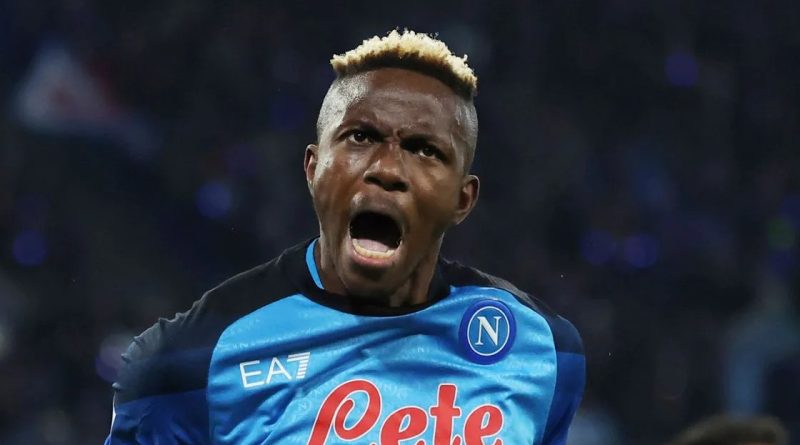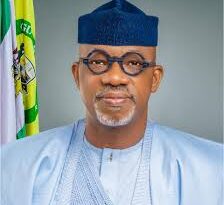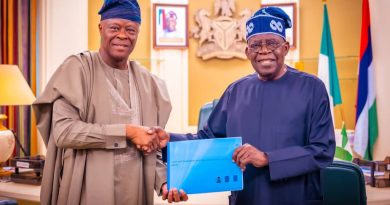“When One Man Isn’t Enough: How Nigeria’s Over‑Reliance On Osimhen Exposed The Super Eagles”
…How NFF’s over-reliance on Osimhen doomed Super Eagles
By BENJAMIN OMOIKE
As the dust settles on Nigeria’s painful failure to qualify for the 2026 FIFA World Cup, a question hangs heavy in the air: what went wrong? The Super Eagles, long-feted as one of Africa’s most talented sides, fell short not because of a lack of star quality, but because they leaned too hard on that star—and the rest of the squad lacked the unity, drive, and resolve to do more.
At the heart of the narrative is Victor Osimhen. The prolific Galatasaray striker was once again Nigeria’s talisman and leading goalscorer during qualifiers—yet, according to critics, his influence masked a deeper malaise. Former national team striker Brown Ideye warned publicly that Nigeria were “heavily reliant” on Osimhen’s goals.
The problem, Ideye argued, was not Osimhen’s brilliance but rather that “the other strikers need to step up their game.”
This overreliance exposed a glaring lack of squad depth. In a truly balanced team, failure from one player—or his temporary absence—would be mitigated by others stepping up. Yet in Nigeria’s campaign, Osimhen often appeared irreplaceable. When injured or substituted, his absence was felt acutely in attack, and the Super Eagles’ tactical patterns became predictable, pedestrian, and easily exploited.
Veteran voices amplified the criticism. Victor Ikpeba, former African Footballer of the Year, placed much of the blame on the players themselves, saying that despite having “quality players Nigeria has scattered around the world,” the team was performing below expectations.
Meanwhile, Sunday Oliseh, a revered former captain, delivered a damning verdict: if Nigeria fails to earn a World Cup spot again, he said, the leadership of the Nigeria Football Federation (NFF) “will have no business staying … in their positions.”
Beyond the tactical and personnel questions lay a more intangible but acute issue: commitment and hunger. Several pundits and fans have argued that the Eagles’ campaign suffered from a lack of edge. Moses Simon, one of the senior players in the squad, captured this frustration when he told ESPN that “there are no excuses … we just need to give everything that we can.”
He went further, urging players to take personal responsibility: defenders, midfielders—even strikers should all be ready to score and contribute.
This message of collective effort, however, was not translated on the pitch. Tactical instability, frequent managerial changes, and a lack of consistent leadership compounded the problem. According to observers, Nigeria struggled to find a coherent identity under its rotating coaches.
The new coach, Éric Chelle, arrived with ambition, but little time to fully imprint his philosophy.
Osimhen himself acknowledged the urgency of the situation. He had spoken openly about being “desperate” for qualification, warning that failing again would be unacceptable—not only for him, but for his generation.
Yet desire, as he well knew, could only go so far. In the final match, when he was substituted at halftime—and, according to some accounts, replaced under less-than-ideal circumstances—the Eagles collapsed, eventually losing out via penalties. Without their talisman at full strength, the edifice crumbled.
Critics now argue that this failure should prompt a broad reset. The calls are growing louder for fresh faces, including players of Nigerian descent from both domestic and foreign leagues, to be incorporated more aggressively into the national setup. But there is resistance. Some argue that such changes risk undermining team cohesion; others fear that tinkering without addressing leadership and culture issues will merely mask deeper rot.
The squad’s underperformance has also rekindled debate about the NFF’s role. If Nigeria is to recover from this setback, many believe, it will require not just coaching changes—but a rethinking of ambition, accountability, and structure across the entire national programme.
At its core, the Eagles’ elimination reflects more than just missed chances or bad luck—it reveals a systemic fragility. When one man bears almost all the weight, the whole structure teeters. Without a collective hunger, leadership, and a balanced squad, even the brightest star cannot carry a team into history.
Some believe the Sunday after this failure should mark the start of a new chapter: a squad not beholden to one man, but forged in unity, purpose, and shared responsibility. If Nigeria is to recover and compete on the world’s biggest stage again, that kind of soul-searching may be non-negotiable.




